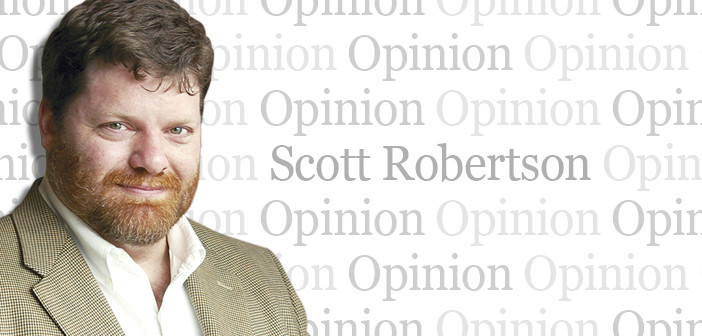By Scott Robertson
The Washington County Commission is faced with a remarkable choice in the coming weeks: which is the better tool for paying for essential county needs, debt or taxes?
None of us likes to have our taxes raised. Just so, nobody likes to hear that government is putting more debt in place, forcing the taxpayers to pay interest in order for the government to have the privilege of “buying now and paying later.” Paying later always means paying more.
Yet there are needs that must be met. Things wear out and need to be replaced, from school buses to building roofs to old computers. And replacing those things costs money.
So which is the lesser evil? Debt or taxes?
County Mayor Dan Eldridge told the commission Monday night that he believes, with very few exceptions, debt is the greater evil.
“When Washington County borrows to invest in economic development initiatives that directly grow the tax base, we are like the private sector borrowing to leverage resources in order to create or grow earning assets,” Eldridge said in the commission meeting. “However, when we borrow to replace a roof or a chiller or to implement a new public safety radio system that does not directly contribute to growth in the tax base, there is no leverage gained through use of debt. There’s only the additional cost of interest.”
That’s a lot of words to say, “debt is only an effective tool if the things it pays for generate more revenue or savings down the road than the cost of the interest up front.”
So Eldridge is asking the commission to put in place a 10-year plan to decrease the amount of bonded debt it uses, replacing bond revenue with revenues generated by tax increases. Again, nobody likes tax increases, but Eldridge says the county can move from paying $6 million a year in interest to paying $0 in interest if it gradually converts to a pay-as-you-go system. He points to McMinn County as an example. That county weaned itself from bonded debt years ago. It has no outstanding debt today. By the way, that $6 million of interest means nearly 22 cents of Washington County taxpayers’ $1.91 property tax rate goes into the pockets of financiers, buying no services for the taxpayers whatsoever.
You would think that would mean McMinn pays much higher property taxes, then, right? Nope. The lack of interest payments there means there’s one less thing for which taxpayers are asked to foot the bill.
It must be quite something for some of Eldridge’s former political foes to hear the mayor calling for elimination of bonded debt. Eldridge worked in his first term to refinance existing county debt. At one point, one of his chief detractors on the commission said in a meeting, “he is going to spend us into bankruptcy,” because Eldridge preferred to pay for economic development initiatives with debt at a time when the county had a positive general fund balance.
Unfortunately, the current commission has precious little time to understand the intricacies of what they’re being asked to consider. In order for any tax hike to be usable for capital projects this fiscal year, the commission must approve it by the first Monday in October. That means 25 commissioners need to come to a full understanding of this – approve it if they so choose – and be able to defend it to constituents who don’t like tax hikes –in fewer than 35 days.
Eldridge has already called a meeting of the budget committee the morning of Sept. 3 at the Washington County Courthouse to address any concerns commissioners and members of the general public might have. Among the concerns one might expect to hear:
• Future commissions may well decide to scrap the 10-year move toward pay-as-you-go, rendering the whole discussion moot.
• The economy is unpredictable. Making a one-year plan is absolutely necessary. Making a five-year plan is strategically important. Making a 10-year plan is wishful thinking.
• The short time-frame between now and implementation of the first year’s tax increase will give little to no time to let the public know that this isn’t a tax hike for operational expenses, but that it is targeted to capital projects. Casual observers of county government who heard about the operational budget being passed with no tax increase less than three months ago might feel bait-and-switched if they learn of this increase without hearing both the context about cutting debt and the difference between operational and capital projects budgets.
The benefits of implementing some version of a capital investment plan are easy to see. Limiting interest payments benefits every taxpayer. Providing a reliable funding stream for maintenance of existing capital assets (buildings, vehicles, etc.) offers the possibility of extending the functional lives of those assets and reducing their long-term operational costs by maintaining them instead of repairing them. And having a source of available funding for emergencies is prudent.
Ideally, the mayor and the county finance director, Mitch Meredith, would have been on the phone with virtually every commissioner for the last few weeks, explaining the details of the various options. Since that apparently isn’t what happened, the headaches those two gentlemen receive over the short window for consideration must be considered self-inflicted.





